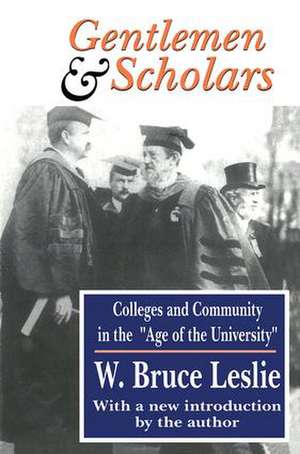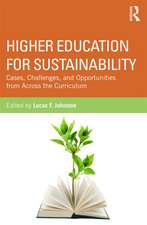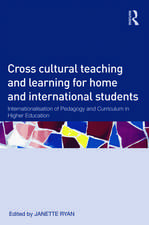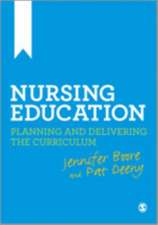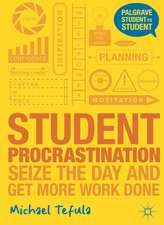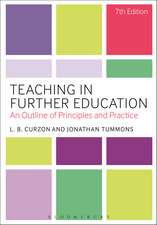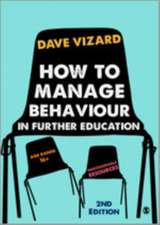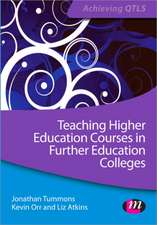Gentlemen and Scholars: College and Community in the Age of the University
Editat de W. Bruce Leslieen Limba Engleză Hardback – 4 apr 2018
According to Leslie, nineteenth-century colleges were designed by their founders and supporters to be instruments of ethnic, denominational, and local identity. The four colleges Leslie examines in detail here were representative of these types, each serving a particular religious denomination or lifestyle. Over the course of this period, however, these colleges, like many others, were forced to look beyond traditional sources of financial support, toward wealthy alumni and urban benefactors.
This development led to the gradual reorientation of these schools toward an emerging national urban Protestant culture. Colleges that responded to and exploited the new currents prospered. Those that continued to serve cultural distinctiveness and localism risked financial sacrifice. Leslie develops his argument from a close study of faculties, curricula, financial constituencies, student bodies, and campus life. The book will be valuable to those interested in American history, higher education, as well as the particular institutions studied.
"This book continues the story started by Veysey's Emergence of the American University. Its innovative approach should encourage scholars to study colleges and universities as parts of local communities rather than as freestanding entities. Leslie's findings will substantially revise currently accepted accounts of the history of education in the late nineteenth century."--Louise L. Stevenson, Franklin and Marshall College
| Toate formatele și edițiile | Preț | Express |
|---|---|---|
| Paperback (1) | 185.89 lei 6-8 săpt. | |
| Taylor & Francis – 30 apr 2005 | 185.89 lei 6-8 săpt. | |
| Hardback (1) | 352.95 lei 6-8 săpt. | |
| Taylor & Francis – 4 apr 2018 | 352.95 lei 6-8 săpt. |
Preț: 352.95 lei
Preț vechi: 454.60 lei
-22% Nou
Puncte Express: 529
Preț estimativ în valută:
67.55€ • 69.78$ • 56.21£
67.55€ • 69.78$ • 56.21£
Carte tipărită la comandă
Livrare economică 25 martie-08 aprilie
Preluare comenzi: 021 569.72.76
Specificații
ISBN-13: 9781138524255
ISBN-10: 1138524255
Pagini: 318
Dimensiuni: 152 x 229 mm
Greutate: 0.45 kg
Ediția:1
Editura: Taylor & Francis
Colecția Routledge
Locul publicării:Oxford, United Kingdom
ISBN-10: 1138524255
Pagini: 318
Dimensiuni: 152 x 229 mm
Greutate: 0.45 kg
Ediția:1
Editura: Taylor & Francis
Colecția Routledge
Locul publicării:Oxford, United Kingdom
Cuprins
Introduction 1 Four Colleges and Their Communities Part One Colleges and Communities, 1865-1890 2 Rural Piety and Urban Wealth 3 When Professors Had Servants 4 “What Knowledge Is of Most Worth?” 5 Students as Gentlemen Part Two Convergence and Cosmopolitanism, 1890-1917 6 Piety versus Prosperity in the Protestant College 7 Presidential Power and Academic Autonomy 8 Knowledge Fit for Protestant Gentlemen 9 “The Side Shows Have Swallowed Up the Circus” Part Three Emergence of the Modern American College 10 The Age of the College 11 The College in the Social Order
Descriere
Historians have dubbed the period from the Civil War to World War I "the age of the university," suggesting that colleges, in contrast to universities, were static institutions out of touch with American society
